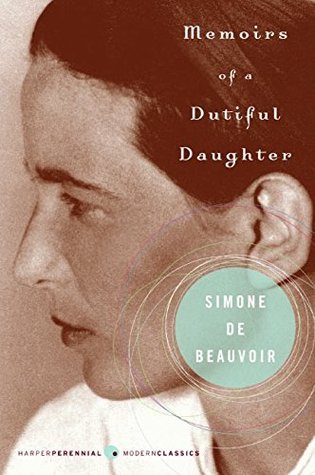More on this book
Community
Kindle Notes & Highlights
The Prime of Life (1960), Force of Circumstance (1963), and All Said and Done (1972).
During their long years of literary apprenticeship—years in which they both produced draft after draft that would end up, like their other manuscripts, relegated to a drawer—Sartre saw that Beauvoir was at her best when she portrayed her own experience.
Existentialism acknowledged the absurdity of the human condition, while at the same time insisting on individual freedom and choice.
according to these two existentialists, choices were demonstrated by actions
people’s actions cast light on their “original project.”
It was an excuse to peruse old journals and letters, to go back to the library and look at newspapers from her childhood, to reread the books that had influenced her as a girl, to swap memories with her sister, and her childhood friends.
She worried that memoirs were a self-indulgent art form, but Sartre reminded her that the most deeply personal writing was also the most universal.
As she sees it, her “original project,” which she constantly pursued and strengthened, was “savoir et exprimer,” to know and to communicate.
Have the courage to go toward freedom, however difficult this might be.
She makes you want to read more books, travel across the world, fall in love again, take stronger political
stands, write more, work harder, play more intensely, and look more tenderly at the beauty of the natural world. That is a beautiful gift.
9th of January 1908
rissoles,
blanquette,
in the backside of a lead figure she called ‘Mister Skitters’, she would light a white capsule out of which poured long coils of twisting brown matter.
Madame de Ségur’s
Altogether, the scanty resources of my city childhood could not compete with the riches to be found in books.
Zouave,
sedulous
Sniffing the fragrance of incense, my eyes watering with the reek of candles, I found it sweet to kneel at the foot of the cross and dream vaguely of the cup of hot chocolate awaiting me when we got back home.
But he was more conscious of his rights than he was aware of his duties.
Alphonse Daudet, Maupassant, Bourget, Marcel Prévost, and Jules Lemaître.
Camelots du Roi*
I was amazed at his culture, his intelligence, and his infallible good sense.
Un Évangile, by Coppée, Le Pantin de la petite Jeanne by Banville, Hélas! si j’avais su! by Hégésippe Moreau,
Ruy-Blas, Hernani, the plays of Rostand, Lanson’s Histoire de la littérature française,
He did not condescend to me, but raised me up to his level, and then I was proud to feel myself a grown-up person.
she learnt English and began to study Latin in order to be able to follow my progress.
The warmth of her affection made up for her unpredictable temper.
The consequence was that I grew accustomed to the idea that my intellectual life – embodied by my father – and my spiritual life – expressed by my mother – were two radically heterogeneous fields of experience which had absolutely nothing in common. Sanctity and intelligence belonged to two quite different spheres; and human things – culture, politics, business, manners, and customs – had nothing to
do with religion. So I set God apart from life and the world, and this attitude was to have a profound influence on my future development.
This imbalance, which made my life a kind of endless disputation, is the main reason why I became an intellectual.
talking to my mother in the evenings, and this peaceful murmur often lulled me to sleep.
‘Simone is more serious-minded, but Poupette is so affectionate.
it was just like what you read in books about wise parents whose love is the same for all their children.
Blondine, my doll,
as a mere corporal, my father earned about five cents a day,
My entire upbringing continually re-affirmed that virtue and culture were more desirable than material wealth, and my own tastes encouraged me to believe it;
Valentine, or The Demon of Curiosity
Lying flat on the Turkey carpet, I used to read Madame de Ségur, Zénaïde Fleuriot, Perrault’s fairy-tales, Grimm, Madame d’Aulnoy, the Bavarian author of children’s tales, Canon Schmid, the books of Töpffer
and Bécassine, the adventures of the Fenouillard family and those of Sapper Camember, Sans famille, Jules Verne, Paul d’Ivoi, André Laurie, and the series of little pink books, the ‘Livres Roses’ published by Larousse, which contained legends and folk tales from every country in the world, and which during the war included stories of the great heroes.
Malvy and Caillaux.
solfeggio
L’Abbé Constantin
Le Voyage de Monsieur Perrickon;
Madame de Ségur’s Les Vacances,
Cosmopolis.
Bourgets
Claudine at School
Les Veillées des chaumières


